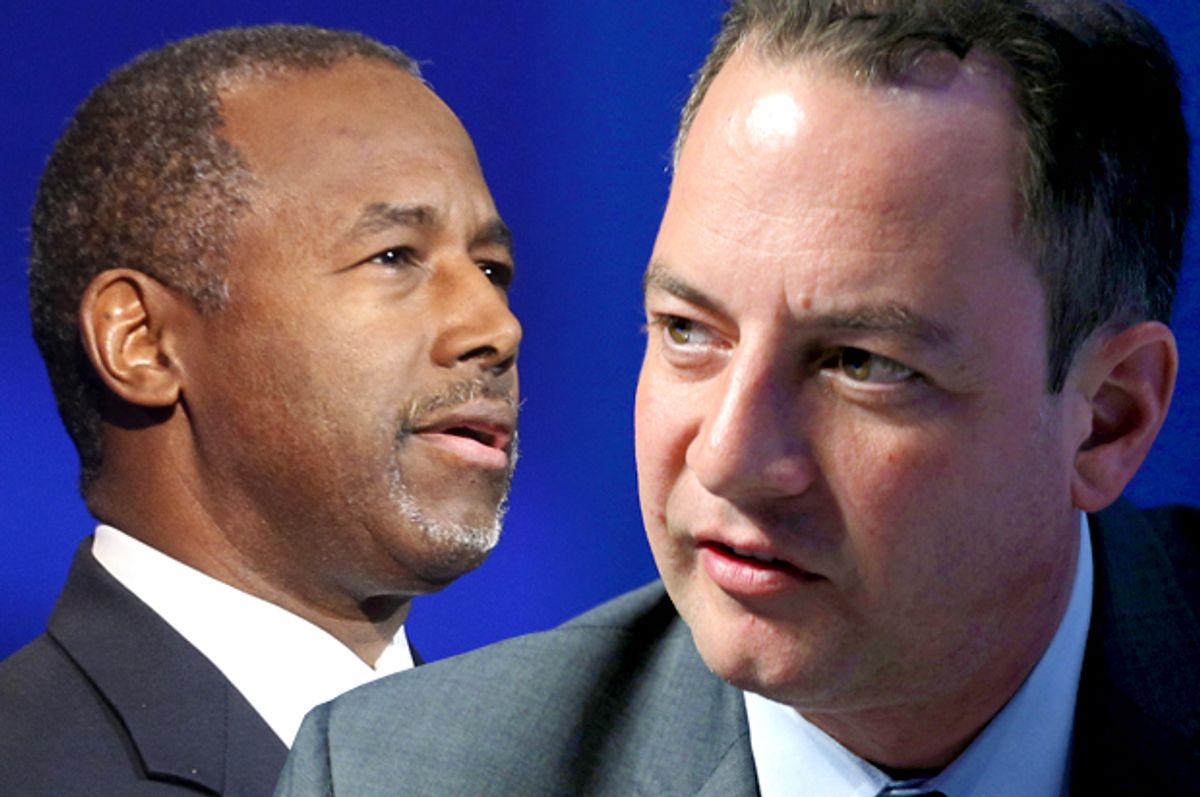Republicans have been plagued by division in recent years, but a newfound sense of harmony has broken out in the party in the wake of Wednesday's presidential debate. Lots of people in the GOP may not like each other, but they've all agreed that they like CNBC even less.
The Republican National Committee has embraced its crusade against CNBC—which has been subjected to a merciless drubbing for its woeful handling of the debate—with relish. The party has a petition up asking its acolytes to "put the mainstream media on notice":
CNBC should be ashamed. Biased questioning by CNBC moderators was a disservice to our candidates and to YOU the voters.
The RNC won't stand for it. We will fight to protect our candidates.
RNC chair Reince Priebus has spent the last 18 hours or so in the highest of dudgeon, stomping around telling anyone who will listen that CNBC was the very model of nasty liberal media partisanship, only focused on taking Republicans down. Never mind that CNBC is possibly more in sync with the economic policy platform of the GOP than any other TV channel, or that the candidates' theatrical objections to some of the questions covered up the fact that those questions were both valid and based in truth, or that the real problem with the moderators was that they let the politicians get away with so many flat-out lies. By creating an atmosphere where the candidates felt at liberty to ignore any question they didn't like and instead harass the hosts, the network has now allowed the GOP's leadership to steer the focus of the conversation to one of its favorite hobbyhorses. And this is where the real damage from CNBC's amateur hour is emerging. The Republicans are now gearing up for battle, with the clear intention of bringing any future moderators in line.
It was bad enough that CNBC put on such a shoddy debate. Now, there's a real risk that the networks that have to deal with the aftermath of the latest forum will find themselves under a new wave of pressure from the GOP to buckle to whatever demands the party can come up with. The New York Times wrote ominously that various presidential campaigns are "huddling to discuss the best way to push their party and the networks toward greater transparency and input on the format." This during a campaign cycle that has already seen the RNC exercise a markedly increased level of control over the debate process. Some candidates, like Ben Carson, are already speaking publicly about their intentions to try and force more constraints on the media down the line.
Republicans have a very potent hand to deal. The debates have given each of the networks that have aired them the best records in their entire history. No TV executive is likely to give up that prize easily.
It's critical that media outlets resist any further attempts by the GOP to meddle with upcoming debates. To state the obvious: Political parties should stay well away from the journalistic process. It shouldn't be up to them what kinds of questions get asked, or how the moderators handle their time constraints, or who gets to speak and when. There has to be some real independent scrutiny of these candidates, and you can't get that when the parties are stacking the deck. If the networks cave, they'll be setting a dangerous precedent and ensuring that the debates be even more of a joke than they already are.

Shares